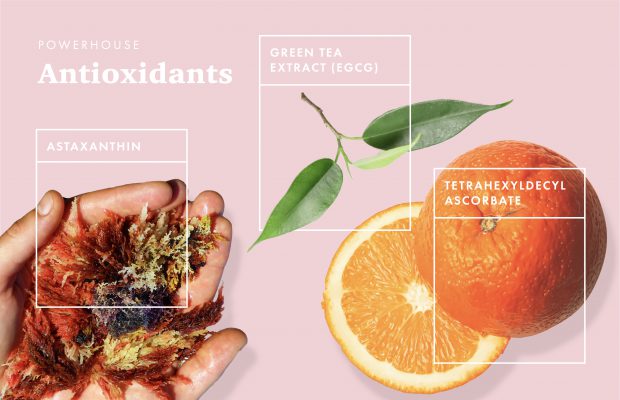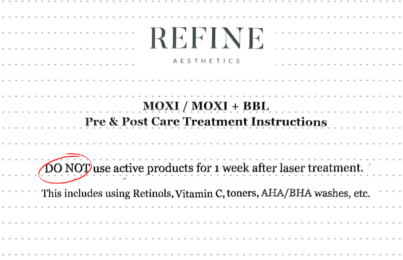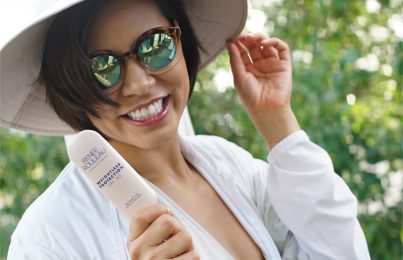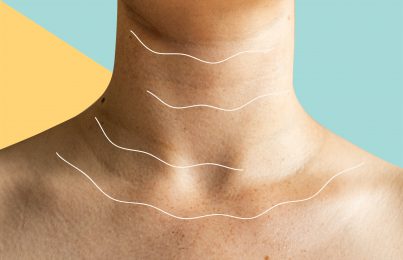Antioxidants are an essential part of any well-rounded skincare routine. They play a key role in preventing oxidation, a process that contributes to cell damage and skin aging. Oxidation is triggered by any number of things we encounter daily, including UV rays and air pollution. We’re also exposed to oxidation from internal factors that are part of the body’s natural aging process.
The good news is that it’s easy to protect your skin by making topical antioxidants a staple in your daily routine (especially your morning skincare routine). The bad news is, there are so many options it can be overwhelming to choose the right ones. In this post, I’ll share five of my favorite antioxidants and talk about which ones might be right for your skin type.
The 5 Best Antioxidant Skincare Ingredients (and How to Choose the Right One)
All antioxidants work in generally the same way—they look for reactive oxygen species (also known as free radicals) and try to scavenge them before they have a chance to damage cells through oxidation. So if they all work in a similar way, how do you know which antioxidants to use for your skin?
My advice is to look for antioxidants that offer additional benefits that are in line with the rest of your skin’s needs. Some antioxidants really go above and beyond just the standard function, so why not choose the ones that will get you one step closer to achieving your skin goals?
Here are what I believe to be five of the best antioxidants you can use, plus the additional benefits they offer. Keep reading to learn which ones will improve your skin!
1. Retinol (Vitamin A)
A lot of people don’t know this, but retinol (also known as vitamin A) is actually an antioxidant. Retinol is a lipophilic (oil-loving) molecule, which means it can penetrate into the deeper layers of the skin and work its magic from within.
If you’re interested in preventing visible signs of aging, retinol is for you. Its antioxidant properties already set it up for being a great preventative-aging ingredient, but retinol also increases the rate of cell turnover to reveal younger-looking skin. This helps build collagen, which retinol also protects by decreasing the activity of enzymes that break collagen down.
One thing to be aware of when it comes to retinol is that you can definitely have too much of a good thing. This isn’t an ingredient you want to overuse or jump right into using every day. Learn how to start without irritating your skin by reading my beginner’s guide to retinol.
2. Tetrahexyldecyl Ascorbate (Vitamin C)
This one may be a mouthful, but tetrahexyldecyl ascorbate (THD) is really just a type of vitamin C. What makes it so special is that it’s a very stable, lipid-based form of vitamin C, which means it’s way less likely to irritate skin than traditional forms of vitamin C. Because of this, I recommend it to people with sensitive skin or people using retinol products. (These are the four other things to look for in a vitamin C serum particularly if your skin is sensitive and if you use retinol.)
THD offers all the other great benefits you would expect to get from vitamin C (building collagen, fighting inflammation), but where it really excels is in improving and preventing hyperpigmentation. This makes it an especially good option if you’re someone who wants to target melasma or brown spots, or if you’re just interested in a brighter-looking complexion.
3. Astaxanthin
As an antioxidant, astaxanthin works by sitting on the surface of the skin and scavenging free radicals to keep them from doing damage. Astaxanthin is a reddish pigment found in certain algae (like red marine algae).
Astaxanthin, or red marine algae, is a soothing ingredient that can help calm inflammation (especially from UV rays) and combat redness. It’s a great option for anyone concerned with irritated, blotchy skin or redness.
4. Niacinamide
Niacinamide is one of skincare’s most versatile ingredients and boasts antioxidant properties among its many talents. Niacinamide is unique because, in addition to acting as an antioxidant itself, it also increases the antioxidant potential of the skin. Translation? It supports your skin in a way that allows it to produce more of its own antioxidants.
As far as what else niacinamide can do for your skin, it would almost be easier to list out what it can’t do. Niacinamide has been shown to decrease redness and blotchiness, reduce fine lines and wrinkles, even out hyperpigmentation, and improve skin barrier function by preventing transepidermal water loss. Learn more about how to use niacinamide depending on your skin’s needs.
5. Green Tea Extract
Most people are already aware of the health benefits of drinking green tea, but did you know it’s a great skincare ingredient as well? Green tea extract is chock-full of polyphenols, a powerful class of antioxidants. One type of green tea extract emerging in skincare is ECGC (which stands for Epigallocatechin Gallate). It’s been shown to eliminate reactive oxygen species in the skin very efficiently.
In addition to being an extremely effective antioxidant, green tea extract can provide soothing and anti-inflammatory benefits to the skin.
Will you be adding one of these five antioxidants into your routine? Keep in mind that there are a lot of great antioxidants out there, these five just happen to be some of my favorites and ones that I love to use in my skincare product line! I’ve found them to be reliable based on the results I’ve seen people get and the research I’ve read. I hope you found this post helpful!
Next, learn exactly how antioxidants prevent cell damage and how to incorporate them into your routine.
Celebrity Esthetician & Skincare Expert
As an esthetician trained in cosmetic chemistry, Renée Rouleau has spent 30 years researching skin, educating her audience, and building an award-winning line of products. Her hands-on experience as an esthetician and trusted skin care expert has created a real-world solution — products that are formulated for nine different types of skin so your face will get exactly what it needs to look and feel its best. Trusted by celebrities, editors, bloggers, and skincare obsessives around the globe, her vast real-world knowledge and constant research are why Marie Claire calls her “the most passionate skin practitioner we know.”



